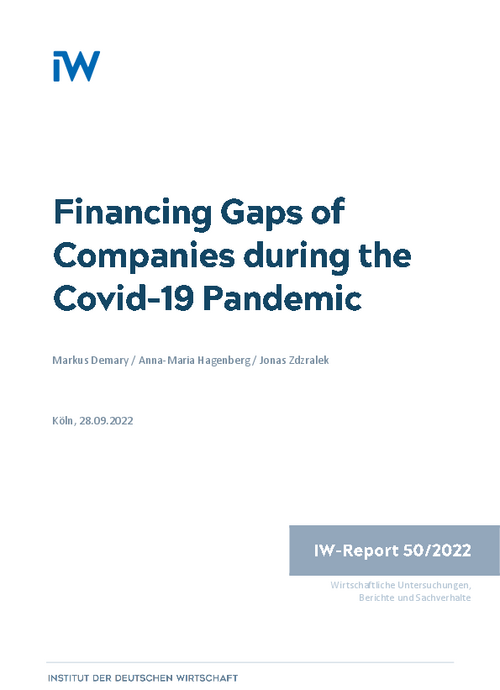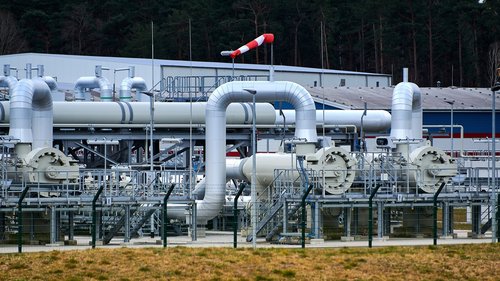For firms’ business and investment decisions their access to finance is a critical determinant. In times when access to finance becomes tight, corporations face either higher capital costs or they have to postpone their investment decisions when credit lines are not prolongated.

Financing Gaps of Companies during the Covid-19 Pandemic

For firms’ business and investment decisions their access to finance is a critical determinant. In times when access to finance becomes tight, corporations face either higher capital costs or they have to postpone their investment decisions when credit lines are not prolongated.
Since business investment is a prerequisite to spur economic growth, access to finance is a critical variable in business cycle stabilization. Therefore, central banks take a close look at the financing conditions of companies, and they have to loosen monetary policy when access to finance becomes tighter. In contrast to the US, where firms rely to a great degree on capital market financing, euro area firms are dominantly funded by banks.
For our empirical analysis we use data from the Survey of Access to Finance of Small and Medium-sized Enterprises (SAFE) from the ECB. SAFE is a semi-annual survey and it covers the relevant data on financing conditions from the viewpoint of euro area firms with a focus on SMEs. The first wave started in the first half of 2009. Regression analyses with only three macroeconomic variables (yield on sovereign bonds, GDP growth and unemployment rate) on the percentage of vulnerable firms yield the result of a strong positive correlation with long-term interest rates. This effect is reduced when adding access to finance or the change in the external financing gap to the equation, which are also positively correlated to the vulnerability of SMEs. At the same time, the vulnerability of companies is negatively correlated with GDP growth indicating that in times of economic crisis, the vulnerability is higher than in times of economic boom. However, the coefficient loses its significance, when the change in the financing gap and access to finance were added to the regression. Since these two variables are also dependent on the business cycle, they better explain the vulnerability than GDP.
Summing up, we find some evidence for a transmission mechanism from yields on sovereign bonds to the vulnerability of companies. Thereby, the business cycle conditions worsen access to finance and the financing gap which both increase the vulnerability of firms. Monetary policy instruments that lower interest rates and enhance the supply of bank credit, such as the Long-term Refinancing Operations or the asset purchasing programs of the European Central Bank, have a positive impact on access to finance and the financing gap and thereby contribute to reducing the vulnerability of companies.
For the normalization of policy interest rates our results suggest that these should take place in an environment of robust economic growth for not worsening the vulnerability of companies. Given that inflation is already several percentage points above target, the ECB might be forced to act with more than a moderate interest rate increase. If we assume that the ECB might increase interest rate by 1.5 percentage points, the share of vulnerable SMEs increases to 5.5 percent. If this monetary policy reduces growth by one percentage point, we end up with a share of 5.9 percent of vulnerable companies. If GDP growth is reduced by three percentage points, the share of vulnerable SMEs increases to 6.7 percent. Given that the share of vulnerable companies during the Covid-recession and during the banking and sovereign debt crisis in the Eurozone was 10 percent and more, higher interest rates seem to be manageable by the ECB according to our estimates.

Financing Gaps of Companies during the Covid-19 Pandemic

More on the topic

The Energy Dependence of Bank Loans
Russia's war against Ukraine has highlighted the vulnerability of the Federal Republic of Germany to Russian energy imports, especially natural gas.
IW
This time is different but still risky: Banking crisis instead of financial crisis
The current crisis of some American and European banks inevitably triggers fears that an international banking crisis could lead to a new financial crisis. But things in 2023 are very different from those in 2007.
IW